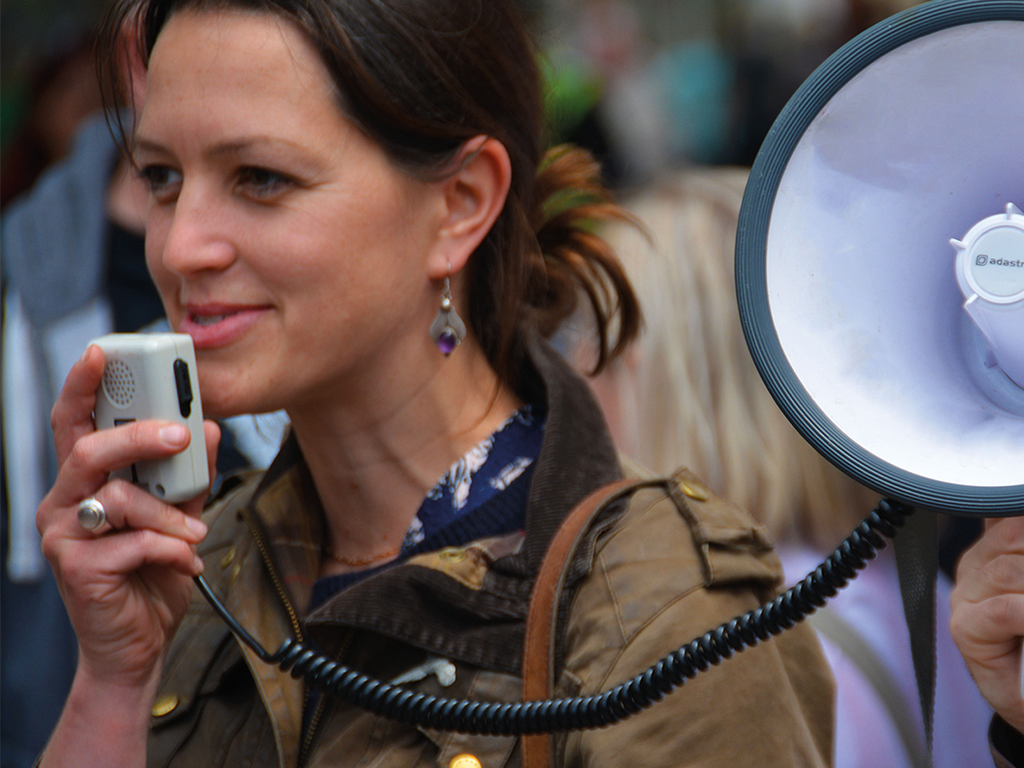 Politics / Civics
Politics / Civics


46500899 / 55500655
Freedom of Speech
A Fundamental Right
In 1948 the United Nations General Assembly passed the “Universal Declaration of Human Rights”.
Quote Katarina Barley, Federal Minister of Justice:
“As the term suggests, human rights are characterised by the fact that they apply to all human beings. THIS is the most important aspect. No matter how old you are, where you live, whether you are male or female, whatever your skin colour is, what your religion is etc. Human rights are the rights that truly every single human being is entitled to.”
Article 19 of the Universal Declaration of Human Rights (UDHR) protects the right of all human beings to freedom of opinion and expression, including the right to impart their opinion and to hear the opinions of others.
Thus, Article 19 prohibits state censorship.
Beyond that, Article 19 protects the right to seek and receive information. The intention is to prevent the deliberate isolation of a state, for instance with regard to searching for information on the Internet.
However, the UN Human Rights Charter is only a resolution of the UN General Assembly – it is not legally binding.
In 1950 the European “Convention for the Protection of Human Rights and Fundamental Freedoms” was passed based on the Universal Declaration of Human Rights of the United Nations.
In addition to freedom of information, freedom of the press and broadcasting, Article 10 of the European Convention on Human Rights ensures the universal right to freedom of expression, which everyone is entitled to.
In Germany, freedom of speech is guaranteed as a fundamental right in Article 5 of the Basic Law. This right includes forming your own opinion as well as expressing and spreading it. No one must be put under pressure, threatened or prevented in any other way from doing so. Everyone may express their opinion in different ways. This includes demonstrations, wearing badges or posting bills as long as it does not violate any other laws.
Quote Katarina Barley, Federal Minister of Justice:
“Article 5 of the Basic Law lists numerous rights, freedom of speech being one of them, but also freedom of the press, for instance, freedom of teaching and science – this is a major, an essential fundamental right. An important aspect is that the fundamental rights always apply vis-à-vis the state. They are no rights that you can assert against private people.”
Quote Friedrich Merz, Lawyer and Politician (CDU):
“23 May 2019 will be the 70th anniversary of the Basic Law – this is the longest period ever during which we have ever had a constitution in Germany in times of peace. More than two generations have not known anything else than the Basic Law with all freedoms that are part of it. But there’s another side of the coin. The other side is that we have all got used to it and take it as a matter of course. But it is not a matter of course. And if we take a look at the news, we can see what is going on in the world around us and to what extent freedom of speech is being restricted. In other words: It is not a matter of course, and if it isn’t, then we all have to show some commitment together so that it will stay the way it is today. And this also applies to Germany.”


Curriculum-centred and oriented towards educational standards
Matching
Computer Games
This film covers the topic of computer games in a variety of ways and from many different angles. Apart from the fascina- tion of computer games for users, the historical development as well as the production of computer games are described. The established genres are introduced, the guidelines of the German BPjM are explained. In light of recent public discussions, a neutral overview of the pros and cons of playing computer games is given, and different kinds of player behaviour are outlined. In this film, the pupils will recognise many aspects of their favourite pastime that encourage an independent, constructive use of this medium and reinforce their media competency. The film and teaching material are very closely related to the real-life situation.
Air Traffic
Being able to fly has been a dream of humanity from time immemorial. But it does not even date back a century that people actually started being able to travel through the air. Since the 1960s, the number of flight passengers has been constantly increasing. Thus, the airspace is no longer dominated by birds but by man-made flying objects.
Internet Addiction
The film consists of two parts. The first part is the 15-minute short film “In the Net”. It describes the problem of excessive Internet use in a humorous way, in particular the risk of losing touch with reality when chatting. The second part illustrates with three real persons how Internet addiction can develop and the problems encountered by those who are afflicted. The authentic statements are commented by an experienced therapist. For many pupils, the issues addressed here are related to their everyday lives. What is a “sensible” use of the Internet, where does pathological addiction start? In contrast to addiction to alcohol, nicotine or drugs, the public seems to be largely ignorant of the problem of this addiction, which is not related to any substance abuse. The film provides material for discussion in the classroom (crossdisciplinary) and can be used as a basis for the formulation of prevention strategies.









